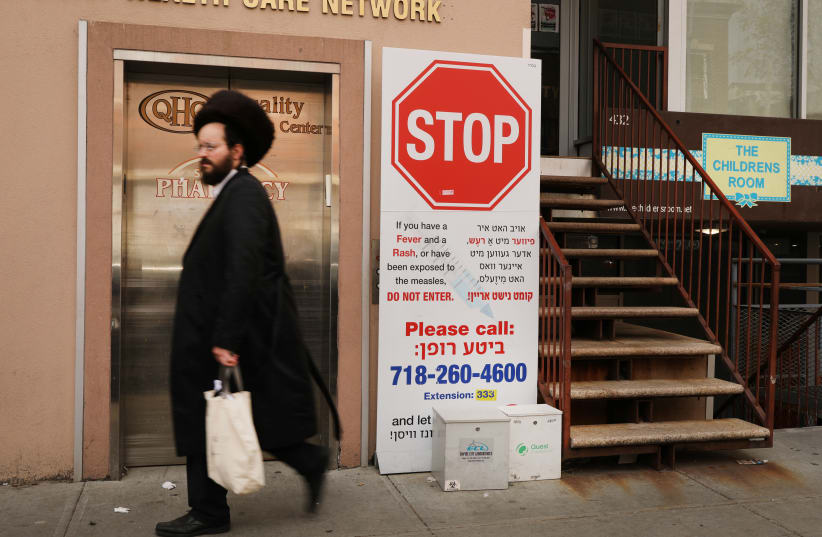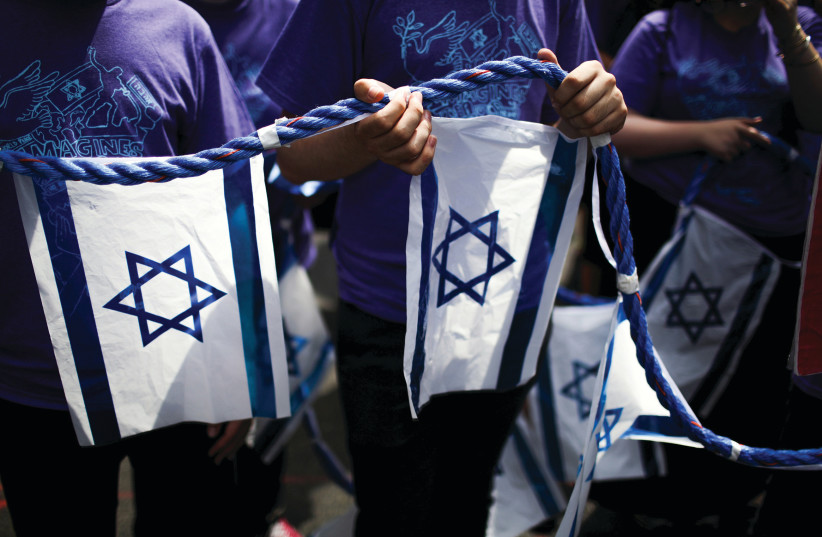Prof. Aryeh Eldad, an Israeli physician and a former member of Knesset for the right-wing National Union party, created controversy during a World Zionist Organization conference by saying that: “There is no future for the Jewish people in the Diaspora unless they are ultra-Orthodox.”
Eldad was speaking at the Heschel Conference on Jewish Peoplehood and Israel-Diaspora Relations, organized by the WZO in collaboration with the Anu Museum in Tel Aviv, where it was held. Eldad is a regular host of a daily radio show on Israel’s 103FM.
In a panel on the plenary session of the conference, Eldad said: “There is no future for the Jewish people in the Diaspora unless they are ultra-Orthodox. There is 70% intermarriage,” he said, quoting data from the PEW survey giving the percentage of non-orthodox Jews that intermarry.
“In another generation or two, there won’t be any more [progressive] Jews. These branches [of Judaism] will die if they will not connect to the ‘ground’ in the Land of Israel,” he said.
“In countries that do not persecute Jews there is no Zionism,” he claimed, without giving evidence. “There is almost no Zionism in the world whatsoever. You can’t be a Zionist in the Diaspora. You can be ‘Hovevei Zion’ (a fan of Zion) – I am in favor of that, but they are not Zionists,” he said of those who support Israel but don’t live there.
“Only nationalism in the Land of Israel will survive,” the former right-wing MK said. “Whoever gives up most of the practical commandments, also gives up the definition of nationalism.”
Eldad declared that Israel is in a difficult situation: “We have big troubles here and now, that cannot be resolved by ‘Jewish Peoplehood.’ This term doesn’t help anyone here in Israel when terrorists murder settlers or if a missile falls on the city of Sderot,” a southern Israeli college town that often is attacked from the Gaza Strip.
THE FIRST annual Heschel Conference on Jewish Peoplehood and Israel-Diaspora Relations took place on Wednesday and was organized by the Peoplehood Department of the World Zionist Organization headed by Dr. Yizhar Hess, a representative of the Conservative movement in national institutions. As a result of Hess’s religious affiliation, most of the rabbis who spoke at the event were members of the Masorti (Conservative) movement; only one of seven rabbis was Orthodox.
The conference was held to commemorate the 50th anniversary of the death of Rabbi Avraham Joshua Heschel, one of Dr. Martin Luther King’s partners in the American civil rights movement of the 1960s and one of America’s most influential rabbis.
Heschel was a Polish-born American rabbi and one of the leading Jewish theologians and philosophers of the 20th century. A professor of Jewish mysticism at the Jewish Theological Seminary of America, he authored a number of widely-read books on Jewish philosophy and was a leader of the civil rights movement.
PRESIDENT ISAAC HERZOG opened the conference and spoke about Heschel’s legacy: “The Heschel Conference on Jewish Peoplehood and Israel-Diaspora Relations is a special opportunity for me to speak about a beloved thinker and on a significant and important issue,” the president said in his speech.
“The concept of Jewish peoplehood creates a diverse Jewish identity – this is the idea of Jewish Peoplehood – that does not always have to be just pluralistic, but allows for contact with other Jewish identities; the individual himself has his own Jewish personal identity.”
Herzog mentioned that the “Rebbe” of Jewish peoplehood “is undoubtedly the late Rabbi Heschel, who embodied in his image, identity, values and actions, the Jewish phenomenon in its essence.
“Heschel was a rare Jewish pluralist, who respected all the worlds of Judaism and even those beyond them, which is why he had such a special connection with Martin Luther King,” the president said.
“I THINK it is impossible to approach North American Jewry or to even get to know it without encountering the name of Heschel, as one of the important thinkers whose main influence was in the Diaspora,” Dr. Hess, who is also Deputy Chairman of the (WZO told The Jerusalem Post on Wednesday.
“This conference is a correction of a historical injustice,” Hess said. “In the first years of Zionism and in the first years of the establishment of a Jewish state, it was impossible to recognize Jewish life in the Diaspora. Israel had to establish itself and therefore to also ‘deny exile,’ because of the important experiment of the Jewish people in the 20th century: rebuilding Israel as a Jewish state.
“Building a new country isn’t easy – it involves creating a flag, an anthem, strengthening ideology and enthusiasm for the masses,” he said. “In a way, it’s easier to build a group when you deny a different group. It strengthens the inner unity and sees those who aren’t part of it as outsiders. The thing is, few fulfilled the Zionist vision and immigrated to Israel,” Hess explained.
“Heschel taught us social responsibility and solidarity not only towards Jews, but towards the whole world. Our moral duty today is to help everyone who escapes the horrors of war in Ukraine,” Diaspora Affairs Minister Dr. Nachman Shai said during his speech at the conference.
“Rabbi Heschel was a man of complementary contrasts: Standing before our eyes is a person who rejects any definition and at the same time belongs to everyone,” he said. Heschel was ordained as an Orthodox rabbi, but served as a senior educational figure in both Reform and Conservative rabbinic institutions.
Shai suggested that “Heschel was everyone’s Jew. He acted from the depths of his spiritual perception; he worked to find sparks of great truth in every corner of Judaism. Peoplehood is not a race, but actually love: the love of Israel and for all of the generations.
“Heschel taught us that the State of Israel and the Jewish communities cannot live as isolated islands,” he said in conclusion. “We must strengthen the bond between us.”

